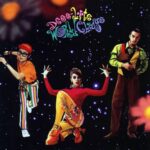
By Jae-Ha Kim
Chicago Sun-Times
September 3, 2004
This forum isn’t questioning whether William Kennedy Smith or Kobe Bryant are rapists. It’s about why people have been so hesitant to believe their accusers might be telling the truth.
Audra Soulias says Smith raped her five years ago — and then had a consensual sexual relationship with her. Bryant — whose criminal case was dropped Wednesday because the accuser no longer wanted to participate in the proceedings — admitted to having sex with the young woman in Colorado, but insisted it was consensual.
Soulias has been painted as an imbalanced, bankrupt woman with a vendetta against Smith. Bryant’s accuser was pegged as an opportunist and a tramp who slept with another man immediately after the alleged rape took place. Even the fact that she auditioned for and failed to make the final cut of a reality TV show became fodder for the media.
Why are these women being vilified not only by the media, but also by other women? Is it because the men in these cases are famous? Or are women rejecting the entire notion, convincing themselves that if they aren’t in the wrong places drinking with the wrong men, they’ll be safe?
The night that Bryant’s criminal case was dropped, the Sun-Times assembled a panel of women to discuss rape, its effects on society and why rape is such a four-letter word. The panelists ranged from a 20-year-old college student to a 50-something activist and victim of rape.
We asked them to speak from the hearts without censoring themselves or being politically correct. Though the word “alleged” wasn’t always used when referring to Smith or Bryant, no one on the panel accused them of being rapists.
The panel
Kathy Posner: member of the Advisory Council on Women of the Chicago Commission on Human Relations
Laura Berman: Sun-Times columnist and sex therapist
Jonamay Lambert: president of Lambert & Associates, which does diversity training and consulting
Monique Patterson: attorney with the public defender’s office
Lynne Johnson: manager of the YWCA’s Chicago Rape Crisis hotline
Lindsay Shadrick: student at Northwestern University and the co-director of the school’s Women’s Coalition
Q: How much is it a woman’s responsibility not to get raped?
Shadrick: As a young woman, it’s not my responsibility to make sure that the person I’m making out with is going to know that no means no. That’s something they should know from the get-go. Why do I have to worry about what I’m wearing or if I’m out too late at a party with my friends? That doesn’t give anyone the right to harm me.
Patterson: I remember reading a quote from Golda Meir years ago when Israel was having problems with rapists. The government wanted to set a curfew for women. She said why don’t we just set one for the men since they’re the ones causing all the problems. I’m a woman first and realize there has always been a double standard between men and women. But as an attorney, I have to wonder about the outcry in the Smith case. Why did she wait all these years to say anything? If this incident happened recently, you’re better able to argue the power issue — he was her boss and took advantage of her. But why wait all these years? That’s what really bothers a lot of people. If someone hurts you, you usually call the police or tell someone. I would see that as being damaging to her case.
Q: People who aren’t sympathetic to Audra Soulias want to know why she would have a relationship with the man she says raped her. They can’t understand why a victim would return to her abuser.
Berman: The [alleged] rape was the reason why she got into a relationship with him. It’s another version of Stockholm Syndrome (where the abused bonds with the abuser to endure the violence). She (said she) was a virgin and she was date raped. In order to live with that, she had no choice but to reconcile it in her mind by wrapping the incident around a relationship. Just because she got into a relationship with him doesn’t mean she wasn’t raped. Wives get raped by their husbands, too.
Posner: I was raped when I was 16. He was a high school student. It was a date rape situation and I was a virgin. After the rape, I thought I was dirty and felt no one else was going to want me. I was so young and didn’t want to be known as promiscuous. Back then [in 1969], you could never talk about it with anyone. You were afraid of what your father would say. You just lived with that shame.
Q: Why aren’t women more supportive of Soulias and the young woman in the Bryant case?
Johnson: Because there is a defense mechanism. Women are saying if I don’t behave that way, I won’t make that choice. I won’t wear those clothes, therefore I’ll be safe and won’t be raped. We all learned to judge other women from a young age, and we see this in the Chicago public high schools. The girls get into a pitched frenzy and attack the girl who says she was raped by a student at school. There’s so much divisiveness and splintering with women, we deflect our attention from where it should be. The fact that there are women in disagreement over the William Kennedy Smith or Kobe Bryant cases is understandable considering the power of our rape culture. The rape culture is supposed to deflect our attention to totally irrelevant things — What was she wearing? How much is she in debt? What do any of those things matter to why she was raped?
Shadrick: It’s a problem across the board for both genders. Some women I know are reading these columns in the paper and not thinking twice about it. Their attitude is she was asking for it. [In the Smith case they want to know] why didn’t she come forward sooner? In the Kobe Bryant case, the woman did come forward right away and she was still accused of making it up.
Q: To many people, Bryant and Smith don’t seem like rapists. What does that say about our perception of who is and isn’t a criminal?
Johnson: We all learned about rape in a racist way, in which a black man we don’t know with a weapon rapes a scared and isolated white woman on the street, and that’s the exact opposite of what we know sexual assault is. Between 75 and 80 percent of rapes are between people who know each other. Rape is about access to victims. So then we try and fit these celebrity stories into one tiny construct that we’ve learned and we can’t make it work, we wonder if the victims are lying. We think about why women aren’t going to espouse the same views and judgments and stand in solidarity together.
Posner: I’m not saying whether either of them are innocent or guilty, but I don’t like a lot of the coverage. A columnist isn’t allowed to write racist things in the paper, but what they’re saying about these women is the same denigrating thing — only it’s toward women.
Q: Why is the issue of what a victim wears so important in a rape case in this day and age where everything seems to go?
Johnson: Sexual assault is about access. It’s never about what someone’s wearing. We do some training groups and someone always asks about what the victim was wearing. When this topic comes up, the coordinator of our hotline says, “If you were walking down the street and saw a car you loved with the windows rolled down and the keys still in the ignition — the CD player’s on and it’s playing your favorite song — would you get in and drive that car home?” The person she asks always says of course not, I’m not a thief. Then she asks the person, if a woman is walking down a street buck naked, drunk as can be and she’s surrounded by 50 guys — and none of them are rapists — what’s going to happen? She’s not going to get raped. Rape isn’t about the victim. It’s about the access of perpetrators to the victim.
Berman: People want something they can grab on to, but where does that stop? You have high school girls walking around with their cleavage hanging out and “Juicy” written on their butts. Then if they’re raped, somehow they asked for it by wearing something provocative? No! You can constantly find things to point to where the victim is concerned. It makes it easy for society to blame her instead of the man who committed this crime.
Shadrick: The whole thing about what was she doing there so late, or why did she get drunk with him is frustrating. Why can’t I go to a party with my friends or by myself? Why can’t I walk down the street without worrying about being jumped? Why can’t anybody do that? Why should I feel any kind of necessity to watch what I wear or watch what I say to a guy? It’s outrageous that I have to constantly worry that if I get assaulted, what’s somebody going to say to me? Is it going to be that I was wearing too short of a skirt or that I was drunk or that I didn’t come forward fast enough? Why isn’t he asked what he was doing at a bar at 2 a.m.? Was he waiting to rape someone?
Q: Has society gotten more open about discussing sexual abuse?
Lambert: Yes and no. When I was in junior high school, my sister and I sometimes were given rides by a teacher and he used to fondle us, my sister in particular. It was really weird how it all happened — it wasn’t very overt. We never told our mother. We were very embarrassed. This summer, I was visiting my sister and this came up and she said it wasn’t a big deal — that he had just been touching her boobs or something. I couldn’t believe it. I said it was a big deal and it bothered me. There are elementary school kids these these days who don’t think oral sex is a big deal and that they weren’t raped if they were only forced to do oral sex.
Berman: If I ask a woman if she’s ever been raped or forced to have sex, I get a much different response than if I ask if anyone has touched them in an inappropriate way. You’ll get a much wider net of women who’ll say they got fondled, but don’t consider that necessarily abuse. They don’t want to see themselves as victims.
Q: Why are rape cases so difficult to prove?
Patterson: There are typically two defenses in a rape case. It wasn’t me, or it was consensual. You can under certain circumstances examine the complaining victim’s sexual history and that’s legal. The flip side legally and the reality is that sometimes sex is used as a weapon or it is misused. Women have cried rape when it never happened.
Johnson: I don’t agree that the criminal justice system is just looking at the facts. Everybody’s spinning their facts. We at the YWCA fight very hard to raise awareness in the community that it’s a mythology that women lie about rape or that women use it to exact some benefit or what have you. We work really hard to establish this because of the penalties we see exacted on the victim and the survivors.





